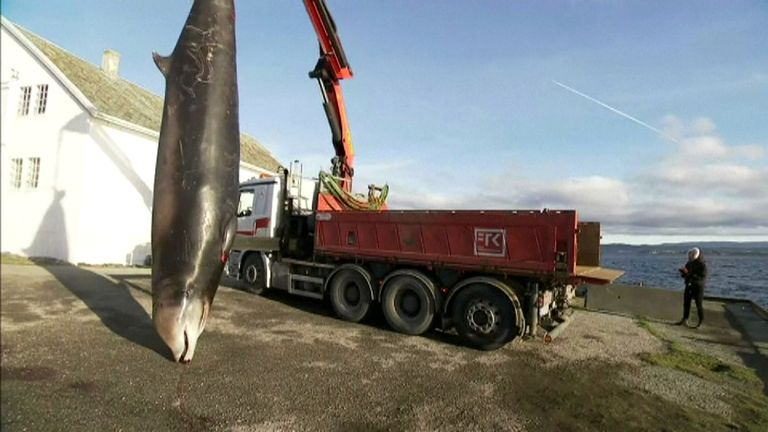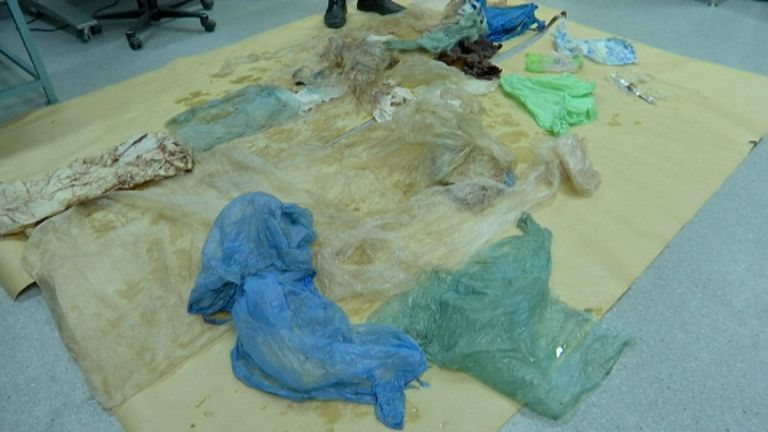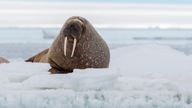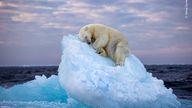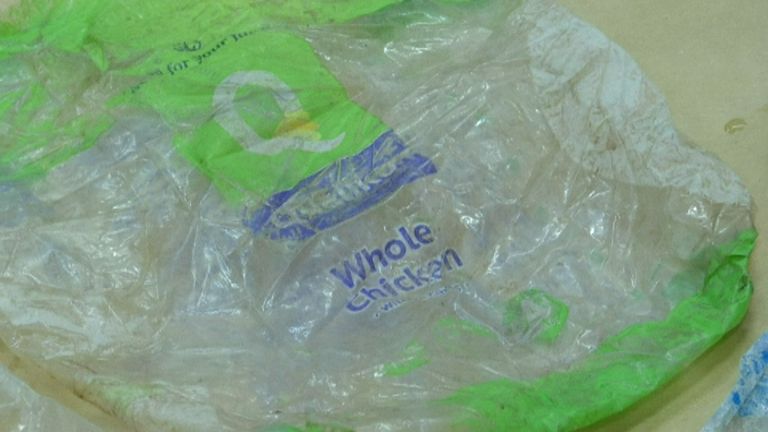Sick whale found to have 30 plastic bags blocking its stomach
The Cuvier's beaked whale was unable to eat because of the amount of plastic in its gut and had roamed out of its usual waters.
Friday 3 February 2017 18:23, UK
A distressed whale that was put down after repeatedly becoming stranded off the Norway coast had 30 plastic bags wedged inside its stomach, researchers have said.
The 6m (20ft) Cuvier's beaked whale was discovered in shallow waters off the island of Sotra, west of Bergen, at the weekend.
A post-mortem examination revealed its intestines were completely blocked with the bags and other items of plastic, some with English writing on them.
Vets from the University of Bergen said the bags would have blocked its digestive system, causing the animal - also known as a goose-beaked whale - considerable pain.
:: Sky Ocean Rescue - how to get involved
Several attempts had been made to direct it back out into the sea, but eventually it had to be shot.
Dr Terje Lislevand, a zoologist at the university, told the Bergens Tidende newspaper the whale was emaciated, suggesting it had been unable to feed for some time.
He told Sky News: "It wasn't like it was in just part of the stomach. It filled up the whole space.
"I think the whale has been in pain. I don't think it's been comfortable to have this in the stomach.
"It's the explanation of why the animal acted so strange and stranded."
Cuvier's whales grow up to 22ft and feed on squid and fish. They do not normally range in Norwegian waters.
Researchers believe it may have mistaken the plastic bags for squid.
Sky has launched its Ocean Rescue campaign to raise awareness of the damage being caused to our marine environment worldwide by single use plastics.
More than eight million tonnes of plastic is thrown away each year and washed out to sea and scientists estimate that there are more than 150 million tonnes of plastic waste in the ocean.
By 2050, the amount of plastic in the sea is likely to weigh more than all the fish.
Last week, Sky News filmed a post-mortem on a fulmar, a large seabird.
Its stomach was full of plastic and almost certainly resulted in a catastrophic loss of appetite.
